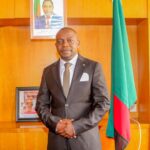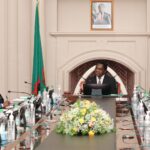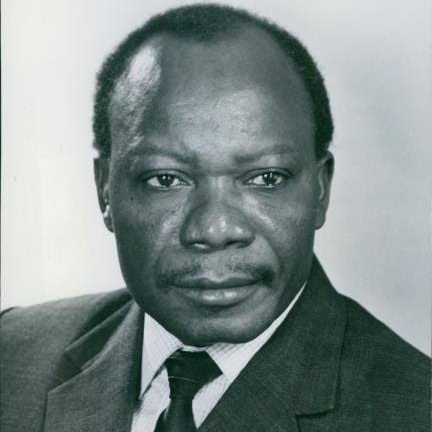Harry Nkumbula was a central figure in the struggle for Zambia’s independence and a prominent political leader in the country’s early history. His contributions to Zambia’s political landscape and his role in shaping the nation’s future are significant and worth remembering. Here are 20 key things you should know about this influential leader:
- Early Life: Harry Mwaanga Nkumbula was born on April 17, 1917, in Chinsali, Northern Rhodesia (now Zambia). His early years were marked by his involvement in local and regional politics.
- Educational Background: Nkumbula received his early education in mission schools and later attended Munali Secondary School in Lusaka. His education played a crucial role in his political activism.
- Political Awakening: Nkumbula’s political journey began with his involvement in the Northern Rhodesia African National Congress (NRANC), where he was an active member fighting against colonial rule.
- Formation of the ANC: In 1948, Nkumbula was instrumental in founding the African National Congress (ANC) in Northern Rhodesia. The ANC played a crucial role in the fight for independence.
- Leadership Role: As the leader of the ANC, Nkumbula worked tirelessly to mobilize support for independence and was a key figure in the early nationalist movement.
- Advocacy for Self-Government: Nkumbula was a strong advocate for self-government and was committed to achieving greater political rights for Africans in Northern Rhodesia.
- Political Rivalry: Nkumbula’s leadership often put him in opposition to other prominent nationalist leaders, including Kenneth Kaunda, who later became Zambia’s first president.
- Detention and Imprisonment: During the struggle for independence, Nkumbula faced several periods of detention by the colonial authorities due to his political activities and leadership in the ANC.
- Role in Constitutional Reforms: Nkumbula played a role in negotiating constitutional reforms that eventually led to the creation of an independent Zambia. His efforts were crucial in shaping the political landscape of the country.
- Transition to Independence: As Zambia approached independence in 1964, Nkumbula’s party, the ANC, struggled to maintain its influence against the growing popularity of Kenneth Kaunda’s United National Independence Party (UNIP).
- Post-Independence Politics: After independence, Nkumbula’s political influence waned as Kaunda’s UNIP became the dominant party. Nkumbula continued to be active in politics but faced challenges in regaining his former prominence.
- Public Service Contributions: Beyond his political career, Nkumbula was involved in various public service initiatives, including efforts to improve education and healthcare in Zambia.
- Cultural Advocacy: Nkumbula supported the preservation and promotion of Zambian cultural heritage and was involved in initiatives to enhance national identity and pride.
- Economic Views: He advocated for economic policies that would benefit ordinary Zambians and was concerned with issues related to economic development and equality.
- International Recognition: Despite political challenges, Nkumbula was recognized internationally for his efforts in the fight for African self-determination and his role in Zambia’s independence.
- Personal Struggles: Nkumbula faced personal and political challenges throughout his career, including conflicts within the nationalist movement and difficulties in achieving his political goals.
- Authorship: He wrote and spoke extensively about the political and economic issues facing Zambia, contributing to the broader discourse on African nationalism and independence.
- Death: Harry Nkumbula passed away on September 8, 1983. His death marked the end of a significant chapter in Zambian political history.
- Legacy: Nkumbula is remembered for his dedication to Zambia’s independence and his role as a key figure in the country’s early nationalist movement. His contributions continue to be recognized in Zambian history.
- Commemoration: Various institutions and places in Zambia have been named in his honor, reflecting his lasting impact on the nation and his role in its history.
In conclusion, Harry Nkumbula’s life and career were pivotal in Zambia’s journey to independence. His leadership in the nationalist movement, advocacy for self-government, and contributions to the nation’s early development leave a lasting legacy in Zambian history. His efforts and struggles remain an important part of the country’s narrative of independence and nation-building.






